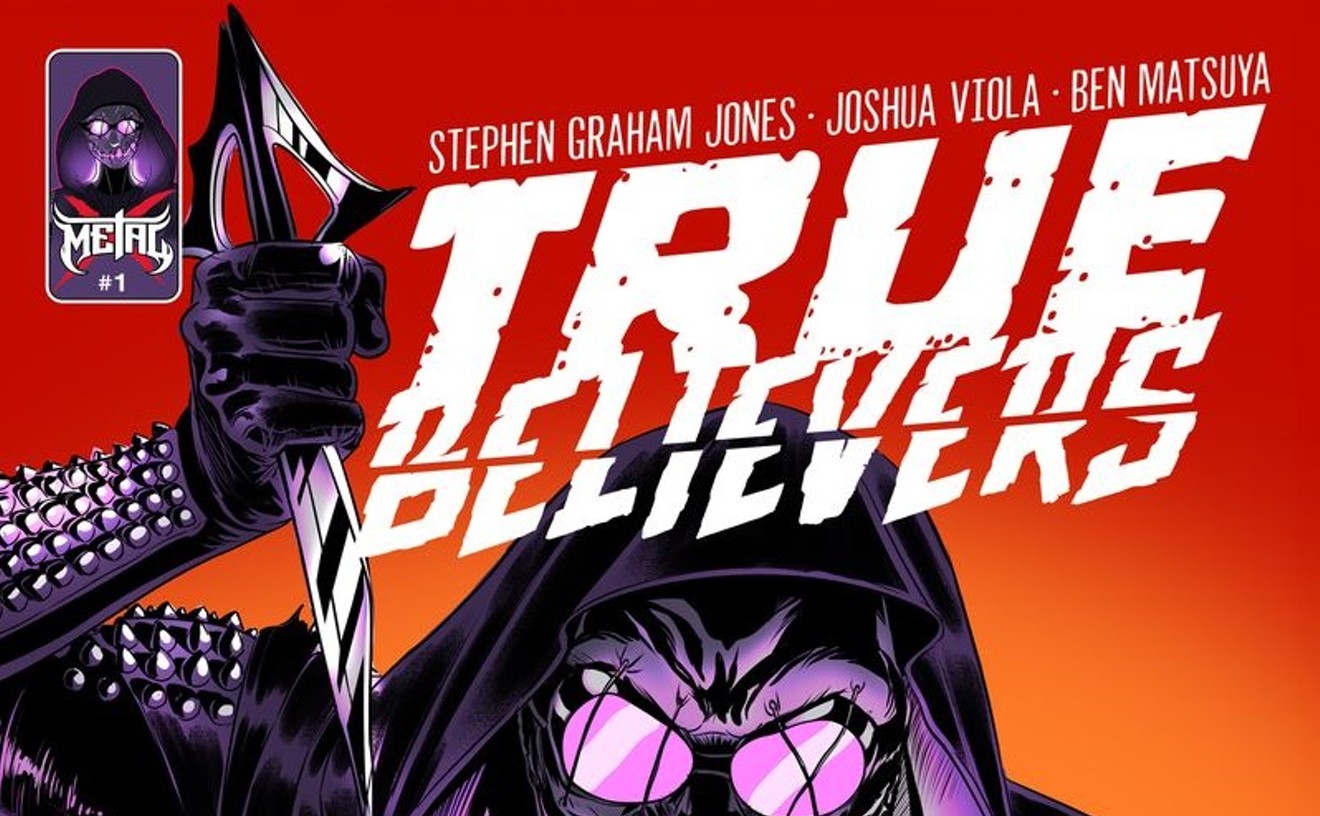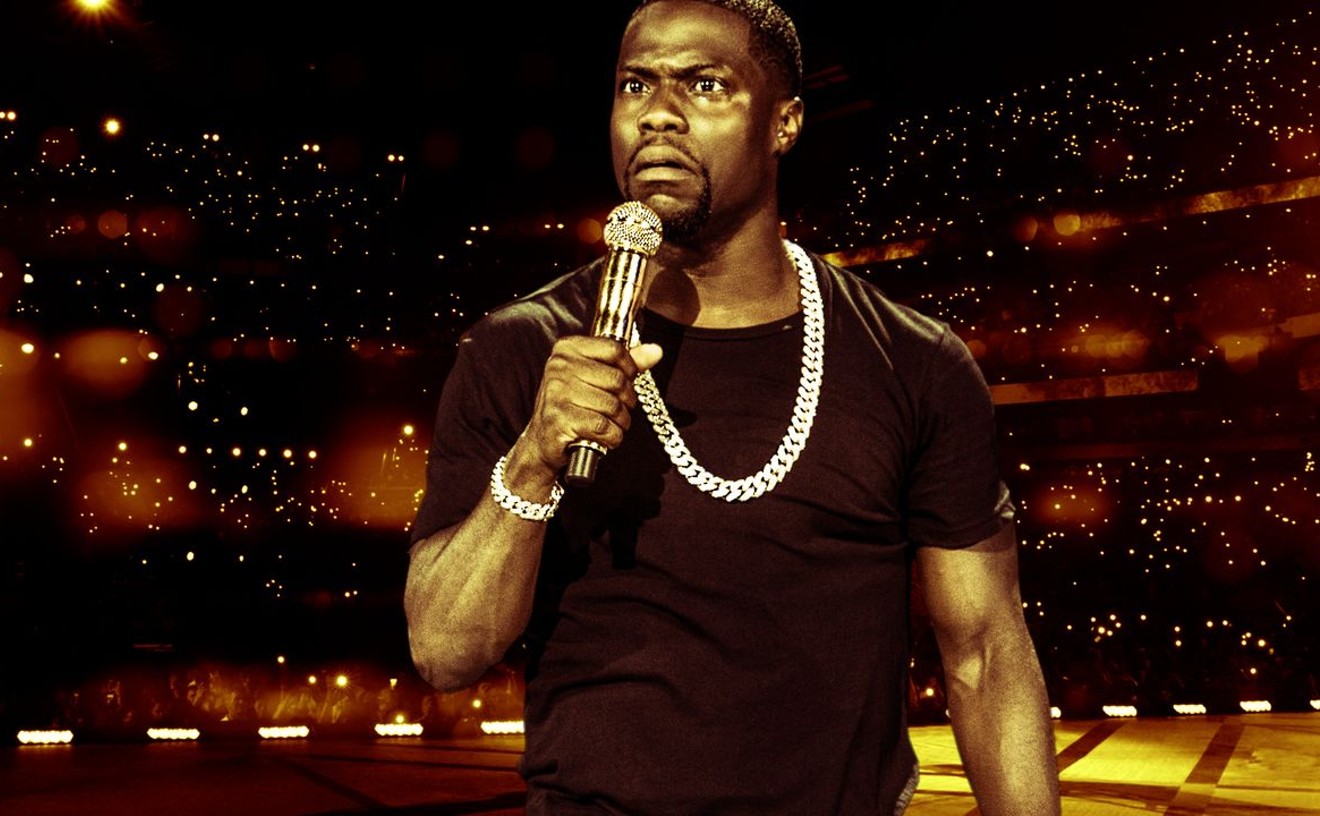But I needn't have worried about The Pillowman. The current Denver Center Theatre Company production doesn't act on the nervous system; it isn't upsetting or even particularly moving. So now I'm trying to puzzle out exactly what hot young author McDonagh is attempting -- his script is certainly interesting and mordantly funny -- and whether the reason for my lack of involvement lies with the play itself or with Anthony Powell's direction here.
The Pillowman takes place in an unnamed totalitarian society where the protagonist, Katurian, is being interrogated by two cops, Tupolski and Ariel. Katurian's crime: He has written hundreds of stories in which children are killed, and someone has been imitating the methods in his stories and leaving little corpses around town. Katurian has a brother, Michal, brain-damaged because of the torture inflicted on him as a child by their parents. Michal is being held in the next room.
The dynamic between the cops is one of the most inspired things in the play. Ariel is a bristling little bulldog, addicted to torture, ever anxious to kick, strike and apply electrodes to flesh. But he's driven by a sentimental fantasy of being followed in his old age by a trail of grateful, candy-proffering children. Tupolski is subtler, given to expressions of empathy and understanding that alternate with impulsive acts of savagery. He, too, sees himself as a savior of children -- but in a very different and ambiguous way. Violence is the primary focus of The Pillowman, but there's also a wistful, wavering undercurrent, a hope that children might somehow find sanctuary, even if it's in the arms of the grotesque killer-cum-savior, the Pillowman, even in a world without gentleness or redemption, a world where everyone -- including Tupolski and Ariel -- suffered in childhood, a world where children themselves are neither cute nor innocent, and where all the familiar Victorian tropes and images of childhood are mocked and destroyed.
The murder stories are narrated in the arch, unreal style of fairytales: a little girl is choked with apples cut into the shape of people and filled with razor blades (as in fairytales, objects here have a life that's both menacing and benign); a boy bleeds to death because his toes have been cut off. We're reminded of the cruelties of the Brothers Grimm, Hans Christian Andersen's dying innocents, Hillaire Belloc's poems about children who died because they misbehaved -- Jim, eaten by a lion for running away from home; Matilda, left to burn to death because she told lies. The force of the brutality is also deliberately undercut by cynical jokes in the style of GoodFellas, Reservoir Dogs and Lock, Stock and Two Smoking Barrels. As in these films, there's no moral center, and we're encouraged to empathize not with the victims, but with the toughness, bravado and wisecracking style of their attackers.
This is, in large part, a play about the provenance, power and necessity of stories, and all the characters are motivated and sustained by the narratives they spin for themselves. McDonagh also raises the question of whether a writer -- or any other artist -- is responsible for crimes inspired by his work. He shows how stories can justify evil, and the ways in which they can comfort. He plays with the idea that creativity springs from pain: Katurian and Michal both believe that the ugliness of their childhood drives Katurian's writing. Yet that writing is more an agent of destruction than of generation.
There's real originality, energy, subtlety and surprise in The Pillowman, and this production might have more impact if the cast had some fire. Scott Ferrara has a few intense moments as Katurian, and his slightly mannered, self-conscious acting style could be seen as appropriate for the character -- but it precludes feeling and empathy. David Ivers has none of his usual anarchic energy, and is only partly convincing as sad, crazy brother Michal. There's no real menace in the interrogation scenes because Doug Harmson's Ariel isn't scary. Lawrence Hecht turns in the most interesting performance as Tupolski, but his long, slow verbal lobs can only work if the rest of the acting has a taut, crazed energy that's sadly lacking here.











